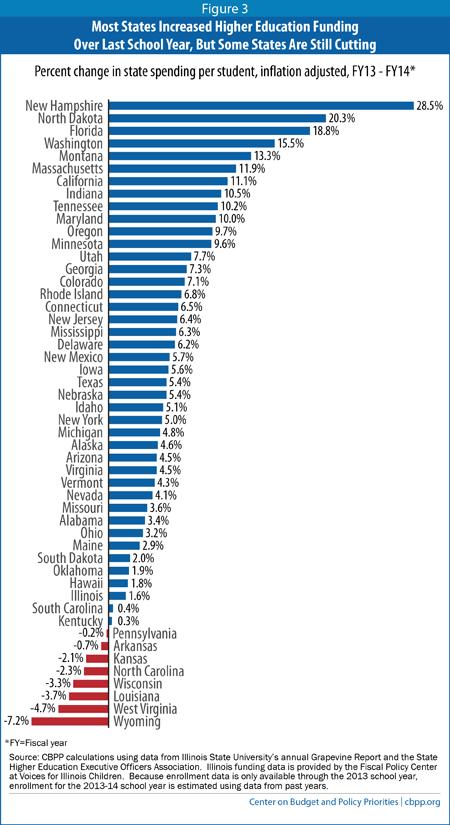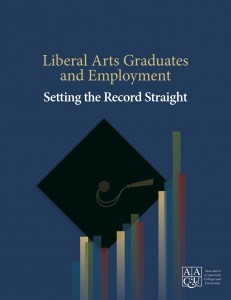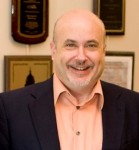 The Center on Budget and Policy Priorities recently released a report on public higher education funding, finding that Wisconsin is one of just eight states that continued to cut higher education spending in 2013-14.
The Center on Budget and Policy Priorities recently released a report on public higher education funding, finding that Wisconsin is one of just eight states that continued to cut higher education spending in 2013-14.
All but two states are spending less per student than before the recession, but funding is beginning to improve after several years of cuts:
The recession has resulted in steep tuition increases (28 percent since 2007-08 on average) and cuts in staff and programs. Tuition in Wisconsin rose more than 21 percent over the past six years.
Like Demos reported earlier, states have shifted the cost of higher education to students and their families through increased tuition and funding cuts. The CBPP found that tuition revenue is greater than state tax funding in 23 states.





 UW-Madison
UW-Madison 